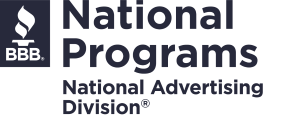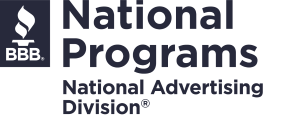5 Ways to Pay for Dental Work
iCrowdNewswire
Mar 23, 2023
Many dental procedures are expensive. Even if you have dental insurance, certain procedures might only be partially covered, or may not be covered at all. This could leave you with a large bill that you don’t have the cash to pay. But not to worry – there are plenty of ways to finance your dental work so you can enhance your smile without breaking the bank. There are several dental financing methods you can use to cover the costs of dental work.
1. Use your credit card
Credit cards are revolving credit, meaning you borrow as much as you need up to your credit limit and repay at your leisure. Many cards offer cashback rewards, meaning you can earn a small amount on your dental work.
Plus, a new card may offer a signup bonus, which pays a certain amount if you spend enough in a specific period. For example, a card might pay you $200 if you spend $3,000 in three months. One dental procedure can go a long way in meeting the spending requirement. That, plus the cash back, can lower your overall cost.
2. Get an installment loan
Installment loans let you borrow a lump sum at a fixed interest rate. You can then repay the loan in fixed monthly payments of principal and interest. This makes payments predictable, so you can easily budget for your dental work. Many lenders require a credit check, but some have less strict requirements. They’ll look at additional factors when making an approval decision, like income and employment, making it easier for poor-credit borrowers to afford dental work.
3. Get a line of credit
A line of credit is revolving credit, similar to a credit card. That means they can work great if you have more frequent and unpredictable dental expenses. However, lines of credit tend to offer higher credit limits and better interest rates.
You can use your line of credit whenever you want and repay what you owe at your leisure. To access funds, you can use the lender’s mobile app, contact your lender to request a certain amount, or write a check against the line of credit.
4. Ask for a payment plan
Dental offices understand that paying for dental work in lump sums is tough. That’s why many are open to discussing payment plans for uninsured procedures. Additionally, third-party services may offer payment plans for you. They pay for the dental work upfront. Then, you repay the third-party service plus fees over time.
If you need a payment plan, ask the dentist or third party which services qualify, whether interest and fees are charged (and how much), and if there’s a credit check. Try to figure out payment intervals as well, such as weekly or monthly.
5. Open a health savings account
Health savings accounts (HSAs) are tax-advantaged savings accounts available with high-deductible health plans (HDHP) as defined by the IRS. They offer a triple-tax advantage, meaning:
- Contributions are tax-free
- Investments grow tax-deferred
- Withdrawals are tax-free if used for qualifying medical and dental expenses
Most dental work generally qualifies for HSA use. This helps you save a lot more money to cover that dental work. Another benefit is that, in retirement, you can make penalty-free withdrawals after age 65 for any reason. You’ll just pay ordinary income taxes on the withdrawals. Medical and dental expenses are still tax-free.
The bottom line
Money shouldn’t stand in the way of a healthy smile. So, there are numerous ways to cover the dental work you need if your insurance won’t. Credit cards are excellent potential choices if you have frequent dental work with unpredictable costs. The cashback rewards and sign-up bonuses can make expenses more affordable. Lines of credit are another revolving credit option if you want lower rates and higher limits.
Meanwhile, an installment loan might be the right choice if you know exactly how much you’ll pay and need predictable financing payments. If you want to avoid debt, you can try to negotiate a payment plan with your dentist or go through a third party. Finally, an HSA is a great tool if you have an IRS-defined HDHP. The triple-tax advantage can offer you much more money to cover dental work debt-free. One of these financing options will help you correct dental issues and improve your smile without breaking your budget.
Contact Information:
Name: Keyonda Goosby
Email: [email protected]
Job Title: PR Specialist
Tags:
IPS, Go Media, CE, Reportedtimes, ReleaseLive, Google News, Extended Distribution, iCN Internal Distribution, English




